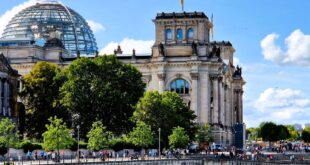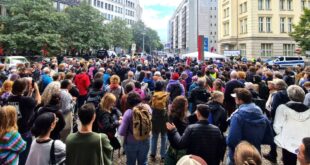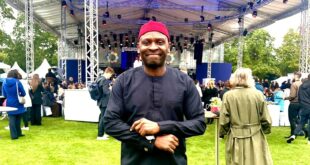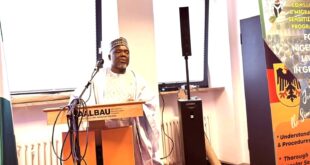This is a book with the express intention of examining German culture through the eyes of foreign residents. If it was to be authentic and representative, it would have to involve people who had settled, lived, worked and experienced life in Germany in all its possible variations. It would have to talk about how they perceive their new country and how they have got along with the natives here. It would be about integration.
For a fairly good picture, 20 people from all walks of life and from all continents – teachers, musicians, writers, lawyers, men and women of African, Asian and Latin American origin – were given a platform to express their sentiments and opinions in recorded conversations and written reports.
What came out is a multi-coloured carpet of emotions, opinions and experiences that are not only interesting to read but which paint a fairly representative picture of the state of mind in Germany today. As the writers said in their editorial, it was not so much the preoccupation with foreigners per se that was their focal point of interest but rather their quest to gain a deeper insight into German culture by looking at how it works on non-natives who come into close contact with it.
A German proverb expresses it aptly: so wie Du pfeiffst, so schallt es zurueck. It was this echo that was filtered and presented in the book. The outcome, a series of short but very interesting autobiographies in German language, should provide inlanders with a mirror in which they can see and appraise their culture in action.
Significant is that none of those interviewed, despite the unavoidable hardships associated with migration, is negatively inclined towards their adopted country. Despite the criticisms expressed here and there, one cannot but feel the deep respect and gratitude that migrants have preserved for Germany.
Germans can rest assured that they have admirers in the world. A lot of people wish them well but they also wished that Germans would stop admiring their navels all the time, while the rest of the world is occupied with the task of living.
The book confirms that Germany has come of age. It used to be official policy to ignore the presence of millions of migrants in Germany. These were people considered to have no business leading normal lives in this country. After a lifetime of selling their labour, they were expected to simply go away and never come back. Governments and citizens were chiefly concerned with the immediate past history: Nazi dictatorship, Jewish extermination, reconstruction and economic miracle.
Official Germany hardly realised that it was an integral part of a bigger world full of interesting cultures and peoples. Since those heady post-war days, a new culture with migration as a phenomenon and challenge has come into being.
Officialdom has finally recognised that whatever happens in and outside Germany has immediate repercussions on life everywhere. Integration has become a household word and efforts are being made to create a new society that takes full account of globalisation. Today, the children of immigrants score goals for Germany, and that is perfectly fine.
The editors of the book under review, all young Germans, should be commended for their curiosity and eagerness to know how their culture impacts on people with different cultural backgrounds. They are among a growing number of thoughtful Germans who want to contribute to social change by holding the mirror to their face.
Jean-Paul Sartre, writing on colonialism and racism in his essay “Black Orpheus” once said: “The state of the Black Man is a direct reflection of what we have made out of him. If we find him ugly, then we are ugly.” So a word to the wise is enough.
Jojo Cobbinah
Deutschland mit anderen Augen, Erfahrungsberichte von Menschen mit Migrationshintergrund, Hrsg. Ulrike Bartels, Claudia Heib, Daniela Ristau, Verlag Horlemann, Bad Honnef, 2009
 THE AFRICAN COURIER. Reporting Africa and its Diaspora! The African Courier is an international magazine published in Germany to report on Africa and the Diaspora African experience. The first issue of the bimonthly magazine appeared on the newsstands on 15 February 1998. The African Courier is a communication forum for European-African political, economic and cultural exchanges, and a voice for Africa in Europe.
THE AFRICAN COURIER. Reporting Africa and its Diaspora! The African Courier is an international magazine published in Germany to report on Africa and the Diaspora African experience. The first issue of the bimonthly magazine appeared on the newsstands on 15 February 1998. The African Courier is a communication forum for European-African political, economic and cultural exchanges, and a voice for Africa in Europe.
































